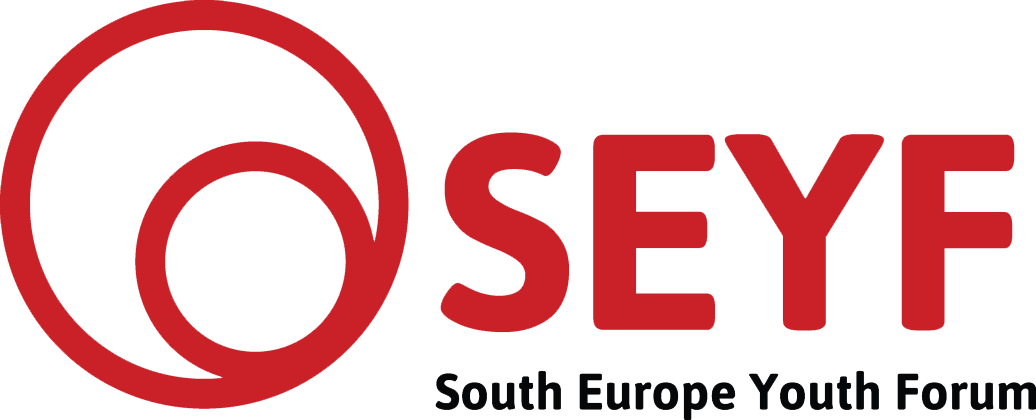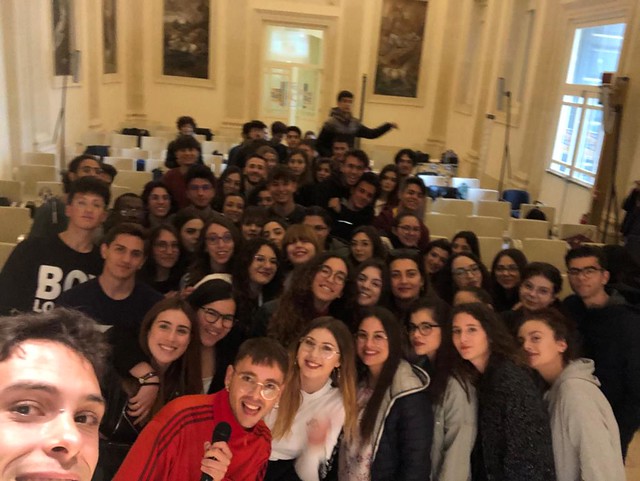![]()
Il progetto Grandi Speranze (GRASP) è stato cofinanziato nell’ambito del programma Erasmus Plus e promosso da SEYF nella provincia di Lecce.
L’obiettivo fondamentale del progetto è stato quello di stimolare il Dialogo Strutturato nonché studiare le dinamiche politiche e partecipative tra Giovani e Amministratori locali e Istituzioni (Decisori Politici) per pianificare una comunità più smart e a misura di tutti fatta di giovani consapevoli dei loro diritti e doveri di cittadini.
I partner di GRASP
Il progetto è stato promosso in collaborazione con il Polo Bibliomuseale di Lecce, Il Liceo “G. Comi” di Tricase e il Liceo “G. DA Vinci di Maglie”.
Il Dialogo Strutturato
Il Dialogo Strutturato Europeo è lo strumento di mutua comunicazione tra giovani ed istituzioni, che permette di favorire il dialogo e la cooperazione alla pari tra giovani e istituzioni locali per la costruzione di una società attiva, orizzontale e democratica e favorire lo sviluppo del territorio, nonché l’innesco di buone pratiche di modelli partecipati e/o partecipativi.
Scopri di più sul dialogo strutturato.
I destinatari del progetto
Pubbliche Istituzioni Scolastiche e Regionali del Salento che hanno partecipato al al progetto, collaborando, scambiando buone pratiche, modelli partecipativi e progetti.
90 giovani sono stati coinvolti per scoprire i meccanismi della cittadinanza, della progettazione, dell’animazione territorIale e per educarli a lavorare per lo sviluppo del loro territorio e della loro generazione.
Le origini e le ragioni del progetto
I GIOVANI:
- i giovani salentini finiscono intrappolati nella precarietà e nell'insicurezza, alimentando esiti ugualmente perversi per il Paese, come la fuga dei cervelli dalle nostre comunità o la crescita dell'esercito dei Neet.
- aumenta il numero di giovani utenti Internet tra 11 e i 34 anni (oltre secondo il 76%). Di questi, solo il 20% utilizza i portali delle PPAA per acquisire informazioni.
- non esistono politiche giovanili locali per i giovani adolescenti (12-18), nè spazi fisici, politici e mentali per i giovani.
LE ISTITUZIONI:
- Le pubbliche amministrazioni locali (scuole e comuni) hanno risorse sempre minori: economiche (taglio trasferimenti agli enti locali) e umane (scarsa disponibilità di team di supporto).
- Le pubbliche amministrazioni locali hanno poco tempo per gestire i rapporti e dialogo con cittadini e studenti (soprattutto i più giovani); La progettazione del territorio manca spesso di modelli partecipativi dal basso (progetti per i giovani o dei giovani?) nonché di adeguata progettazione sociale tarata sul bisogno.
- il target di giovani 16-25 è quello meno presente nelle politiche di costruzione e progettazione di una comunità.
La città smart di Grasp
Smart è un territorio efficiente e intelligente che tiene conto delle necessità di ogni attore che lo vive e partecipa.
Più i cittadini sono coinvolti e decidono insieme agli amministratori, più lo sviluppo del territorio è coerente coi bisogni.
In una comunità smart il dialogo strutturato è lo strumento per mettere insieme il bisogno giovani e la programmazione politico-amministrativa della comunità.
In una comunità smart i cittadini sono più consapevoli di diritti e doveri, delle loro necessità e delle loro risorse esistenti e potenziali.
Le fasi del progetto
Preparazione
Periodo: febbraio - marzo 2019
Scoperta >>> analisi >>> preparazione
Attuazione
Periodo: aprile 2019 (3 gg)
Dibattito >>> Progettazione >>> Azione
Follow up
Periodo: aprile-maggio 2019
Valutazione >>> Eventi >>> Innovazione
![]()
Grandi Speranze has been a project of Structured Dialogue - meetings between young people and decision-makers in the field of youth implemented under the Erasmus plus in the frame of the KA, with the support fo Agenzia Nazionale per I Giovani.
The project has been implemented and coordinated to be hosted from the Italian SEYF, in cooperation with the "Polo Bibliomuseale di Lecce", the Liceo “G. Comi” di Tricase and the Liceo “G. DA Vinci di Maglie”.
The project started from the analysis of local stakeholders (young people and decision makers) who were not able to proper communicate because of the lack of codes, communication means and communication skills. On one hand, there was a young generation of digital natives able to use new ICT with security and confidence but barely educated to participate to the territorial planning; on the other hand, decision makers were not confident enough with ICT and unable to convert territorial needs in a wider perspective of long-term planning.
On this basis, Grandi Speranze aim was to stimulate the creation of moments and tools for the construction of a structured dialogue between young people and local decision makers for a participated planning of a Smart territory, bused upon the needs of its inhabitants.
The implemented activities:
1. Preparation: structured on the 'discovery' (in order to simulate curiosity and awareness on the project), 'analysis' (in order to set up needs assessment and to find the issues relevant for young people) and 'prepar-action' (in order to trainon the state of art, on digital culture and to prepare participants to debate between young people and decision makers).
2. Implementation: structured on three days of activities focused on 'debate' (in order to practice strucutred dialogue), on 'plannning and project development' (in order to foster a joint development of the territory) and on the 'construcion of the platform (in order to prepare for the following project' stage);
3. Follow up: realization of a web platform for a the stable interaction between young people, decision makers and civil society for a common planning of the territroy through a participatory approach.
The Project involved a total of 100 participants: 90 young people aged 16-18 form 3 local areas from the territory and 10 decision makers and experts.
The aims of the project:
- support the active involvement of civil society networks and non-governmental organisations in policy implementation, by facilitating the process of interaction through a structured approach which involved the young people in each stage of the proejct;
- to support the Structured Dialogue with young people and encourage their active participation in democratic life, by giving to the young people the opportunity to be protagonist of the planning and development of their territory;
- the project follows relevant priorities in the field of YOUTH as it complements policy reforms at local, regional and national level and supports the development of knowledge and evidence-based youth policy as well as the recognition of non-formal and informal learning, by enhancing and promoting experience and knolwedge aquired among peers and through the exchange of good practices.
The methodologies used for the project met the requirements of the non-formal/experiential learning: the young participants and the decision makers took part to different actions and their involvement at every stage of the project through the sharing of good practices, open space discussion and benchmarking, constant evaluation and monitoring.
Finally, thanks to the realization of a web paltform for the territorial planning through a participatory approach, young people and decision makers have been involved into a process of transfer knowldege, experience and positive change production. Thus, our expectations to foster the active citizenship on the local territory
through the development of smart planning in a mid-long term perspective have been fulfilled.
See the Photo-Diary | Guarda il il diario fotografico
See the video story | Guarda la video-story
Scopri la piattaforma di Grandi Speranze | Check out the web platform!




